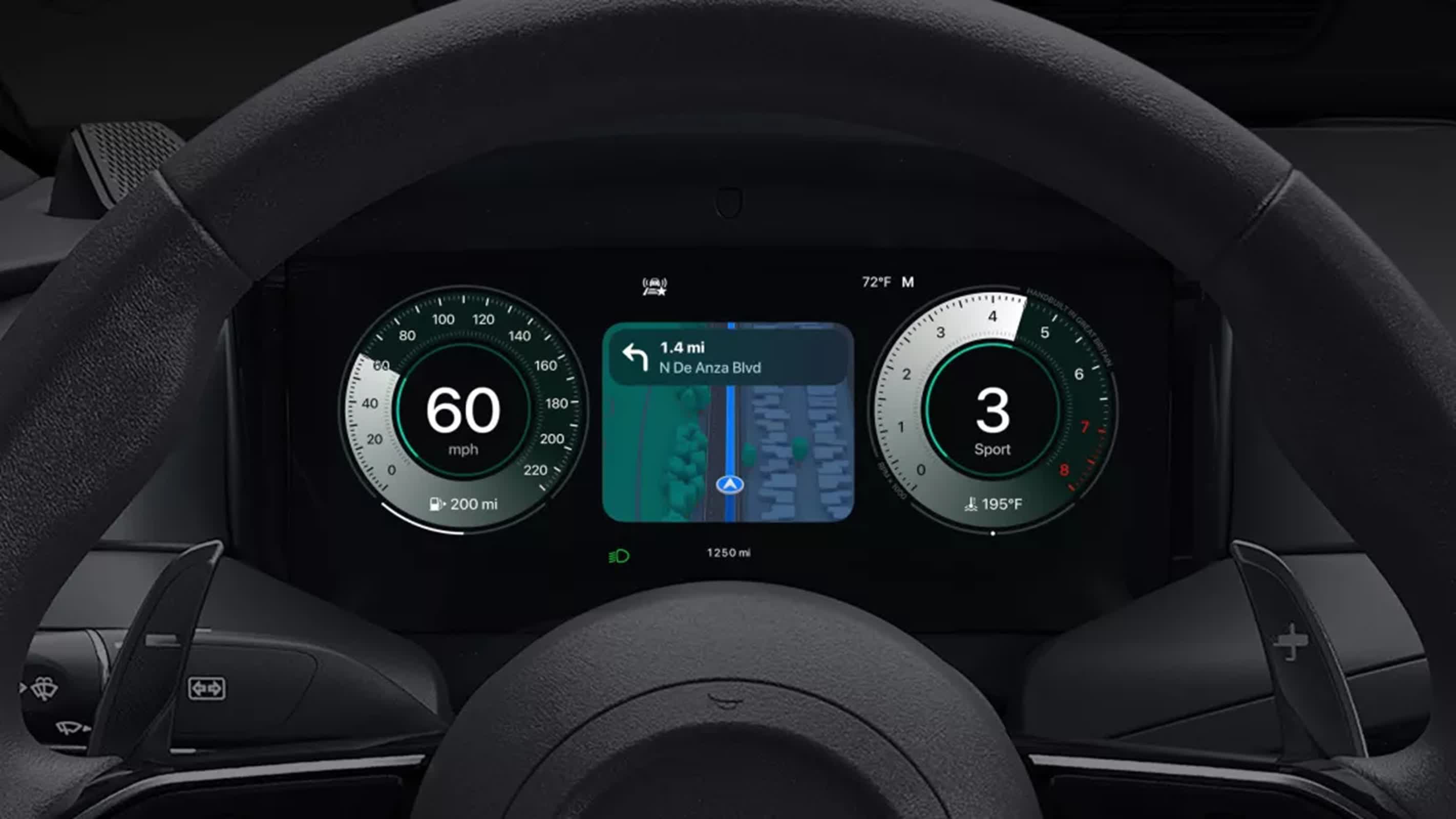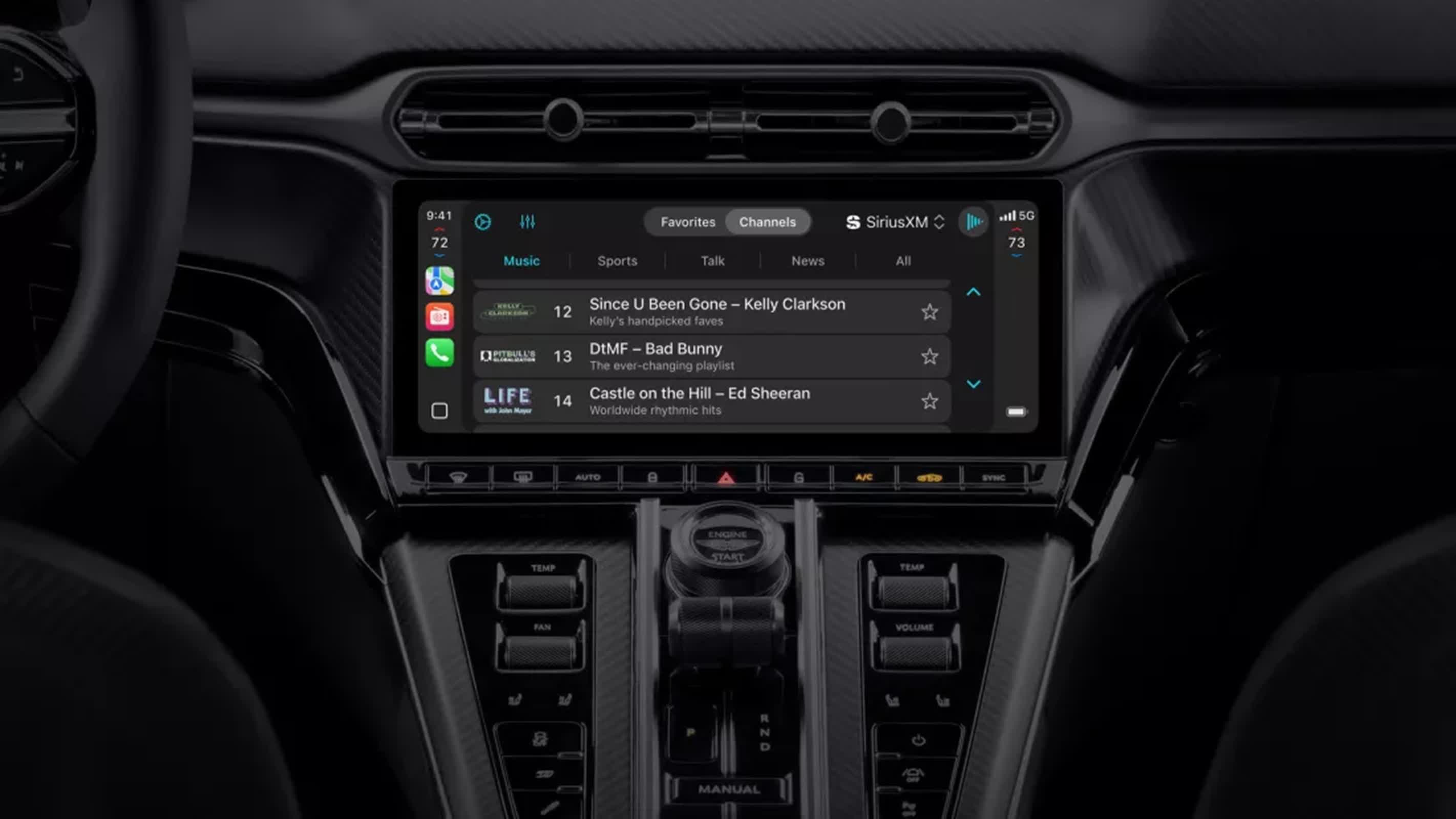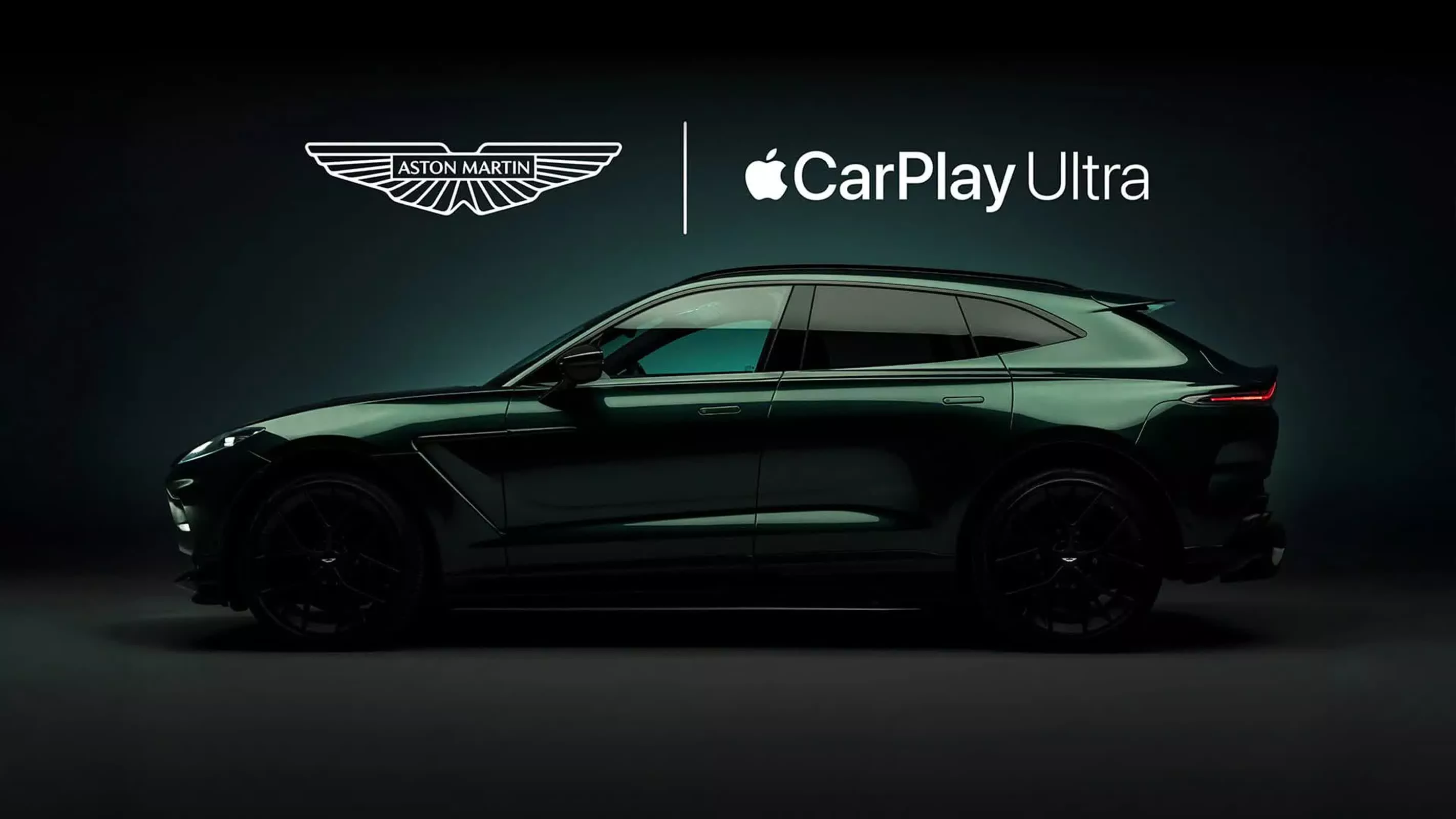In context: As the automotive industry shifts toward electric and autonomous vehicles, the battle for control of the dashboard – and the valuable data it generates – is heating up, with Apple making significant investments in the space. However, pushback from automakers suggests that the road to a fully Apple-powered cockpit will be slower and more contested than the company once envisioned.
Apple's push to expand its footprint inside car dashboards is facing mounting resistance from some of the world's top automakers, as the company's new CarPlay Ultra system navigates an uncertain road ahead. Three years after Apple first previewed its vision of CarPlay extending across every major screen in a vehicle, several major car brands are now distancing themselves from the initiative.
Officially launched in May 2025, CarPlay Ultra marks Apple's most ambitious attempt yet to embed its iPhone ecosystem into car interiors. Unlike classic CarPlay, which primarily mirrors apps like Maps and Music onto a single screen, CarPlay Ultra is designed to control multiple displays – including the digital gauge cluster and center console – while providing access to real-time vehicle data such as speed, fuel levels, tire pressure, and climate controls. Drivers can manage these settings via on-screen controls, physical buttons, or voice commands, all within Apple's familiar interface.
The system's technical capabilities represent a significant leap forward. CarPlay Ultra supports multi-display integration, high-resolution graphics, and customizable layouts that automakers can adapt to reflect their brand identity. Apple says the system is compatible with iPhone 12 and newer models running iOS 18.5 or later and supports both wired and wireless connections.

Aston Martin became the first automaker to launch vehicles with CarPlay Ultra in North America, with Hyundai, Kia, and Genesis expected to follow within the next year.
However, the rollout has been far from smooth. German luxury brands Mercedes-Benz and Audi, along with Volvo Cars, Polestar, and Renault, have all stated they have no plans to adopt CarPlay Ultra, despite Apple's earlier indications that these companies were on board.
The reasons for this shift are both technical and strategic. Automakers remain wary of handing over too much control of the in-car experience to a technology giant. Many are investing heavily in their own infotainment and software ecosystems, aiming to generate new revenue streams through in-car services and data-driven subscriptions.
Companies like BMW and Audi have said they will continue to support the standard version of CarPlay but will not adopt CarPlay Ultra, citing a desire to offer a "customized and seamless digital experience" on their own terms.

Aston Martin, for its part, emphasized that while it has integrated CarPlay Ultra, the interior design of its vehicles remains "unmistakably" Aston Martin. The company continues to offer traditional physical dials for drivers who prefer them, and sources close to Aston Martin told the Financial Times that clear boundaries around data sharing were established from the beginning.
"The use of CarPlay Ultra did not entail additional sharing of vehicle data, which are stored inside Aston Martin's own infotainment system and software," one source told the publication. Apple also confirmed that vehicle data is not shared with the iPhone.
Porsche stands out as one of the few major European brands still committed to CarPlay Ultra. Chief designer Michael Mauer told the Financial Times that the company plans to add support in future models, though no specific launch timeline has been provided. Porsche's decision reflects its long-standing alignment with Apple's ecosystem and its tech-forward customer base.
The debate over CarPlay Ultra comes at a time when nearly all new cars in the US – 98 percent, according to Apple – already support the standard version of CarPlay, with American drivers using it more than 600 million times per day. A 2023 McKinsey survey found that nearly half of car buyers would not purchase a vehicle without CarPlay or Android Auto, and 85 percent of users preferred these systems over automakers' native platforms.
